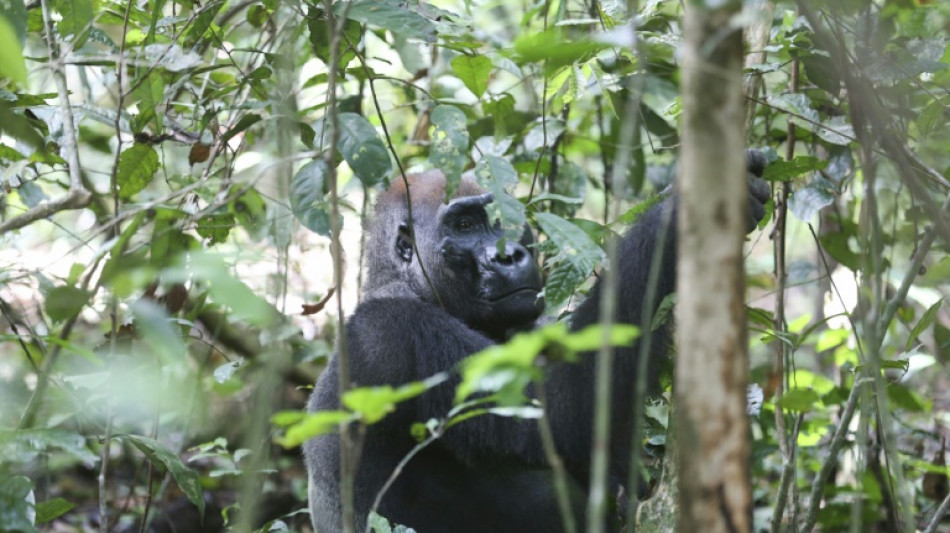
-
 Atletico go third with comfortable win at Girona
Atletico go third with comfortable win at Girona
-
Schwarz breaks World Cup duck with Alta Badia giant slalom victory

-
 Salah unaffected by Liverpool turmoil ahead of AFCON opener - Egypt coach
Salah unaffected by Liverpool turmoil ahead of AFCON opener - Egypt coach
-
Goggia eases her pain with World Cup super-G win as Vonn takes third

-
 Goggia wins World Cup super-G as Vonn takes third
Goggia wins World Cup super-G as Vonn takes third
-
Cambodia says Thai border clashes displace over half a million

-
 Kremlin denies three-way US-Ukraine-Russia talks in preparation
Kremlin denies three-way US-Ukraine-Russia talks in preparation
-
Williamson says 'series by series' call on New Zealand Test future

-
 Taiwan police rule out 'terrorism' in metro stabbing
Taiwan police rule out 'terrorism' in metro stabbing
-
Australia falls silent, lights candles for Bondi Beach shooting victims

-
 DR Congo's amputees bear scars of years of conflict
DR Congo's amputees bear scars of years of conflict
-
Venison butts beef off menus at UK venues

-
 Cummins, Lyon doubts for Melbourne after 'hugely satsfying' Ashes
Cummins, Lyon doubts for Melbourne after 'hugely satsfying' Ashes
-
'It sucks': Stokes vows England will bounce back after losing Ashes

-
 Australia probes security services after Bondi Beach attack
Australia probes security services after Bondi Beach attack
-
West Indies need 462 to win after Conway's historic century

-
 Thai border clashes displace over half a million in Cambodia
Thai border clashes displace over half a million in Cambodia
-
Australia beat England by 82 runs to win third Test and retain Ashes

-
 China's rare earths El Dorado gives strategic edge
China's rare earths El Dorado gives strategic edge
-
Japan footballer 'King Kazu' to play on at the age of 58

-
 New Zealand's Conway joins elite club with century, double ton in same Test
New Zealand's Conway joins elite club with century, double ton in same Test
-
Australian PM orders police, intelligence review after Bondi attack

-
 Durant shines as Rockets avenge Nuggets loss
Durant shines as Rockets avenge Nuggets loss
-
Pressure on Morocco to deliver as Africa Cup of Nations kicks off

-
 Australia remove Smith as England still need 126 to keep Ashes alive
Australia remove Smith as England still need 126 to keep Ashes alive
-
Myanmar mystics divine future after ill-augured election

-
 From the Andes to Darfur: Colombians lured to Sudan's killing fields
From the Andes to Darfur: Colombians lured to Sudan's killing fields
-
Eagles win division as Commanders clash descends into brawl

-
 US again seizes oil tanker off coast of Venezuela
US again seizes oil tanker off coast of Venezuela
-
New Zealand 35-0, lead by 190, after racing through West Indies tail

-
 How Can Gum Disease Lead to Tooth Loss in Kyle, TX?
How Can Gum Disease Lead to Tooth Loss in Kyle, TX?
-
West Indies 420 all out to trail New Zealand by 155

-
 Arteta tells leaders Arsenal to 'learn' while winning
Arteta tells leaders Arsenal to 'learn' while winning
-
Honour to match idol Ronaldo's Real Madrid calendar year goal record: Mbappe

-
 Dupont helps Toulouse bounce back in Top 14 after turbulent week
Dupont helps Toulouse bounce back in Top 14 after turbulent week
-
Mbappe matches Ronaldo record as Real Madrid beat Sevilla

-
 Gyokeres ends drought to gift Arsenal top spot for Christmas
Gyokeres ends drought to gift Arsenal top spot for Christmas
-
Arsenal stay top despite Man City win, Liverpool beat nine-man Spurs

-
 US intercepts oil tanker off coast of Venezuela
US intercepts oil tanker off coast of Venezuela
-
PSG cruise past fifth-tier Fontenay in French Cup

-
 Isak injury leaves Slot counting cost of Liverpool win at Spurs
Isak injury leaves Slot counting cost of Liverpool win at Spurs
-
Juve beat Roma to close in on Serie A leaders Inter

-
 US intercepts oil tanker off coast of Venezuela: US media
US intercepts oil tanker off coast of Venezuela: US media
-
Haaland sends Man City top, Liverpool beat nine-man Spurs

-
 Epstein victims, lawmakers criticize partial release and redactions
Epstein victims, lawmakers criticize partial release and redactions
-
Leverkusen beat Leipzig to move third in Bundesliga

-
 Lakers guard Smart fined $35,000 for swearing at refs
Lakers guard Smart fined $35,000 for swearing at refs
-
Liverpool sink nine-man Spurs but Isak limps off after rare goal

-
 Guardiola urges Man City to 'improve' after dispatching West Ham
Guardiola urges Man City to 'improve' after dispatching West Ham
-
Syria monitor says US strikes killed at least five IS members


Gabon counts on visitors to help preserve great apes
Around a bend on a narrow trail that runs deep into the forest of Gabon's Loango national park, Kamaya comes into view. The huge silverback gorilla coolly watches visitors arrive, then goes back to his meal.
Perched on a strong branch, the 150-kilo (330-pound) beast greedily pulls more leaves from the tree to his mouth with a slow but powerful movement before lumbering down the trunk. Soon he dozes off calmly.
After two years of a total shutdown due to the Covid-19 pandemic, the executive secretary of the National Parks Agency (ANPN) has decided to resume public observations of Gabon's gorillas, hoping the iconic species will serve as a "loss leader" to boost niche tourism.
That Kamaya and his family of about 10 individuals are so used to humans is the outcome of long labours by a team of trackers and scientists who also collect data.
They work to win funds to protect a species threatened with extinction and to attract foreign visitors.
Spending one hour with Kamaya and his group costs 300,000 CFA francs, (450 euros, almost 500 dollars), on top of charges for access to the site and accommodation.
Loango Park, which covers more than 155,000 hectares (380,000 acres) of the densely forested country, offers ample reward for a 4-5 hour road journey from Port-Gentil, the second city, followed by the track and a final stage by boat.
Though steep, the price is much lower than that paid to see the mountain gorillas in Uganda or Rwanda. It also generates income to manage protected areas that provide a safe place for the animals.
— 'Illegal activities' —
"Tourism is a beneficial conservation strategy for gorillas," says Koro Vogt, manager of the Gorilla Loango project. The mountain gorillas of Rwanda and Uganda were almost extinct before funds from tourism helped to double their numbers in three decades, attaining a population of about 1,000 individuals today.
The western gorillas are far more numerous. Their total population is estimated at 360,000 individuals across six central African countries, about a quarter of them in Gabon. The Loango park is home to nearly 1,500 gorillas, some 280 kilometres (175 miles) south of the capital Libreville.
However, scientific studies by the Max Planck Institute for Evolutionary Anthropology, which specialises in great apes, indicate that the number of western gorillas is falling by three percent each year due to the destruction of habitat, poaching and disease.
These threats are heightened by increased access to remote areas occupied by gorillas, the bush meat trade, corruption and lack of law enforcement.
Protected areas such as Loango, which are theoretically perfectly safe for animals, are home to only about 20 percent of the great apes in Gabon.
"To safeguard the gorillas, our guards patrol the national parks to reduce illegal activities and catch poachers," says Christian Tchemambela, executive secretary of the ANPN.
"This species emblematic of Gabon is also a strong draw for foreign visitors. The development of ecotourism is at the heart of our strategy," he adds. From June 2016 until the beginning of 2020, 845 tourists were able to observe the gorillas on site.
— 'Gain their trust' —
A ray of sunlight pierces the treetops and shines on Mokebo, a 15-year-old female, and the little one she is carrying on her back. Not yet a year old, Etchutchuku stirs, glances at the few people watching him, and hides shyly behind his mother.
Close by, a nearly adult male, Waka, approaches the observers out of curiosity. He is unafraid, shows no signs of aggression and settles peacefully a few metres (feet) away.
"This process is very long, it takes years to gain their trust and we are not sure of succeeding," says eco-guide Hermann Landry.
"You have to follow them every day, all year round, relentlessly. Sometimes you lose track of them for several days and that's serious, because they can regain their natural fear of humans," adds Landry, a former poacher who declares that he "fell in love" with gorillas and conservation work.
During an initial habituation phase, gorillas are afraid of humans and run away when approached. In the next phase, they stop fleeing but may react with aggressive charges.
In the final phase, they react calmly and continue their activities without concern about the human presence.
Today, Gabon is counting on the gorillas to attract new visitors.
There are two family groups in the country accustomed to humans, one in Loango, the other in the Moukalaba Doudou National Park 600 kilometres (370 miles) south of Libreville. However, tourist infrastructure is still almost non-existent.
A.Jones--AMWN

